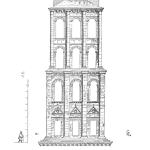
I have been very involved recently with ongoing LI discussions with respected and noted experts in the Safety community, revolving around the perceptions those in Safety have of Reliability, and vice-versa.
In Safety today, there are ‘new’ approaches emerging being lead by noted Safety researchers like Sidney Dekker, Erik Hollnagel and Todd Conklin. Such ‘new’ approaches are being labeled Safety Differently, Safety II, Human and Organizational Performance (HOP), Resilience Engineering and a few more.
As a career Reliability practitioner, when learning more about these approaches, I was not seeing anything ‘new’ about them. I did not disagree with them, I just didn’t see anything new. This is because I have practiced Reliability as I know it, for 30+ years and we have been applying these very same principles as a critical part of a holistic approach to Reliability. In my world, Human Reliability has always been a part of an effective Reliability system. I’m gathering from my extensive discussions with Safety experts that is not the general consensus outside of my Reliability circles, and perhaps inside?
So I wanted to reach out to my friends and colleagues in Reliability to get their perspectives about this journey I have been on in the Safety space.
I presented at an SMRP symposium last year on “Is there a direct correlation between Reliability and Safety?“. I presented many of these impressions from Safety about Reliability, and my audience was astonished at that perception. They thought I was making it up! So it was then I wanted to better understand why the wide gap in perspectives between the two fields?
I received permission from my colleague Gareth Lock who is a recognized and well-respected Safety expert, specializing in Human and Organizational Performance (HOP), to use his quote from a recent post. I am thankful for the permission to use his quote.
Gareth noted the Wikipedia Definition of RELIABILITY ENGINEERING: “Reliability engineering is a sub-discipline of systems engineering that emphasizes dependability in the lifecycle management of a product. Dependability, or reliability, describes the ability of a system or component to function under stated conditions for a specified period of time.”
In that previous post, Gareth laid out these five (5) principles of HOP:
1. People are fallible, and even the best people make mistakes.
2. Error-likely situations are predictable, manageable, and preventable.
3. Individual behavior is influenced by organizational processes and values.
4. People achieve high levels of performance because of the encouragement and reinforcement received from leaders, peers, and subordinates.
5. Events can be avoided through an understanding of the reasons mistakes occur and application of the lessons learned from past events (or errors).
Based on this article about perceptions of Reliability Engineering:
1. What do you think as individuals regarding this characterization of Reliability Engineering?
2. What do you think your customers believe Reliability Engineering is?
3. What do you think about the accuracy of this stated perception from Safety, and if these 5 principles play a role in a holistic Reliability system based on your experience? Can you provide any evidence (with links) to back up your position either way?
Gareth made a notable comment during our discussion, “If the Wiki page is all about components, perception is likely to be about components and hardware…The good news is the Reliability Engineering community can do something about that perception by updating Wiki. The hard part of perception and reputation is that it is externally generated and we only find it if we actively look for it.”
If we don’t agree with the Wikipedia definition of Reliability Engineering, as a community we should change it to reflect what it actually is today. I encourage those involved in Reliability Engineering, especially the various societies who feel it may be mischaracterized, to take Gareth’s advice and provide input to Wikipedia to change it!
Thanks in advance for your input
 Ask a question or send along a comment.
Please login to view and use the contact form.
Ask a question or send along a comment.
Please login to view and use the contact form.
Leave a Reply